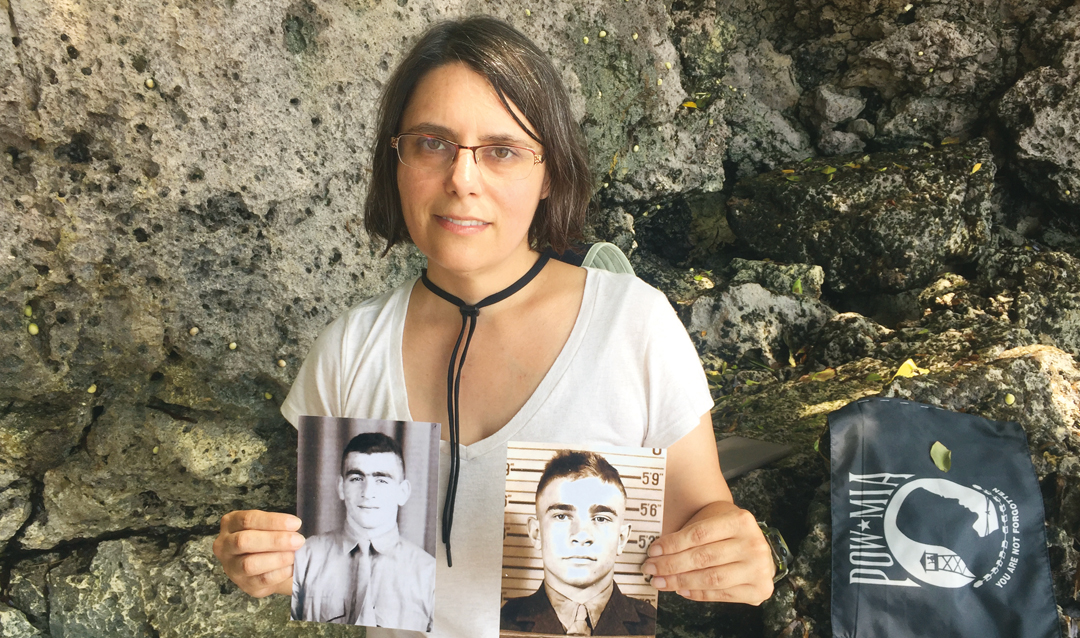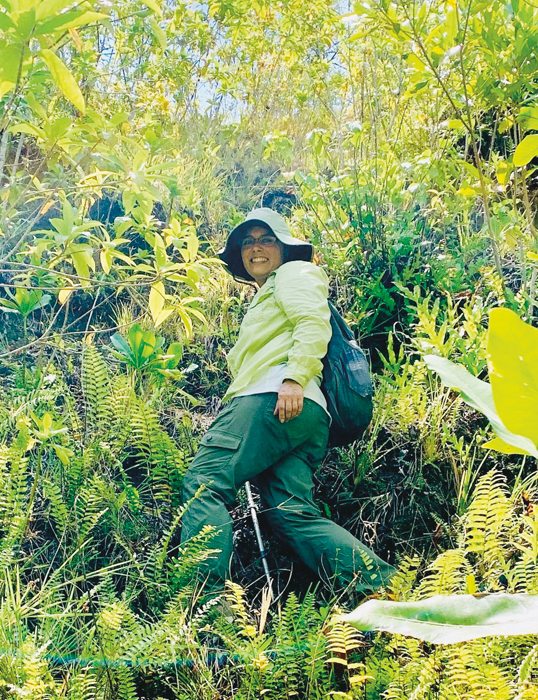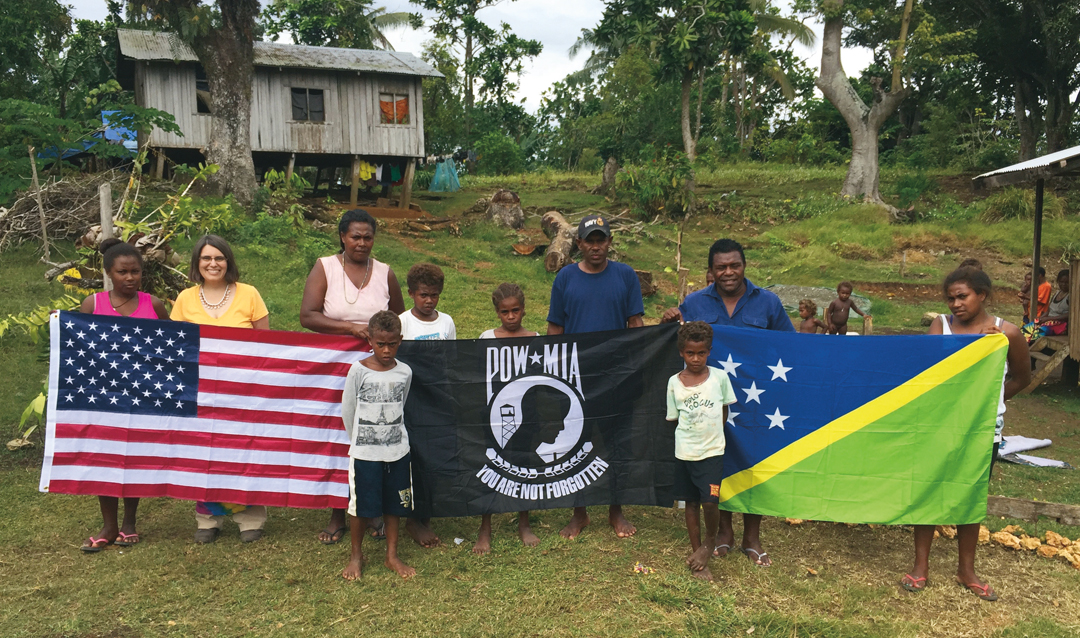When Donna Esposito ’94 was 9, her father took her to see a production of “South Pacific.” That began a lifelong fascination with the Pacific campaigns of WWII, inspiring two novels and a trip to the Solomon Islands, where she helped with the repatriation of an American soldier who was missing in action.
A molecular biology major turned historian, Esposito describes herself as a “WWII Nancy Drew” after the fictionalized teen detective. “The one thing I never understood was where did she get all these mysteries to solve?” said Esposito, an avid reader of the book series. “I felt like I never had any mysteries to solve, which is why I think I went into science.”
From Scientist to Historian
After graduating from Lehigh, Esposito earned a Ph.D. in genetics from Cornell University and eventually went on to manage a genetic testing lab. When the lab shut down in 2014, Esposito decided to pursue her passion as a WWII researcher and independent writer. In 2016, she finished her first novel, “Flying Time,” about a young woman home from college who finds a “sweetheart charm” at a flea market. Such charms were made by soldiers during the war to send home to a wife or girlfriend. In the book, the young woman finds herself transported back in time and must return the charm to its rightful owner. Esposito based the novel on her own experience, finding a Lucite heart made from the windshield of a plane at a flea market. After writing the book, Esposito decided to fulfill her dream of visiting the South Pacific. That’s when she says the plot of her novel started coming true in real life.
“When I wrote the book, I dreamed of going to the Solomon Islands. I wanted to go in 1992 for the 50th anniversary (of the Battle of Guadalcanal) and ended up not going,” she said. “Next thing you know, 25 years went by, and I was finally able to go in 2017 for the 75th anniversary.”
One of the stops on her tour included Guadalcanal, location of one of the first prolonged campaigns in the Pacific, fought between August 1942 and February 1943. The victory was the first step in a series of successes that eventually led to the surrender of Japan and the occupation of the Japanese home islands.
“This was a pilgrimage I needed to make, but I anticipated it would be a one-time thing,” Esposito said. “I could have never guessed the journey it would take me on.”
On her last night there, Esposito was approached by a villager who said his friend’s 8-year-old son had recently found remains with a set of U.S. Army dog tags along the path to a popular waterfall on the island. Esposito believes the man came to her because people knew she was a researcher.







